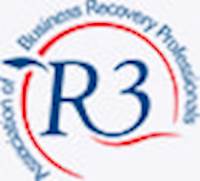What is Credit Control?
Like the Greek God Zeus who governed the daily lives of the mortals by patrolling the skies, credit control presides so that sales revenues increase, by extending credit to those deemed credit worthy; able to pay and pay on time.

And woe betide those who lie or make broken payment promises, as rather than being chastened with a thunderous storm and lightning bolts, credit will be denied and legal steps enacted to recover bad debts!
All very drastic I am sure you would agree and all very avoidable with the much more palatable option of ‘credit control management’. Through credit control management, effective credit control can be asserted and a calming, re-assuring, fluid cash flow secured.
There are two over riding principles. Firstly, the credit control policy and ideals need to be firm enough not to increase company debt, but loose enough so as not to diminish sales. And secondly, the credit control policy and procedures must be known company wide to enable their practise. Then, through their adoption the following can happen.
Discretion: aim for customers who pay in advance for services and goods. If credit checks are needed and until complete, issue proforma sales invoices to gain payment in advance (a real litmus test for the future relationship). Deposits at the least, should be requested to cover materials.
Stipulation: make specific and actionable trading terms with customers: an invoice payable date, a credit allowed figure and the interest to be charged on late payment.
Encouragement: “pay early and receive a discounted price”. Consider why would anyone prefer to pay later and in full, rather than have the discounted price? Cash flow problems?
Procedures: as Spring follows Winter (because Zeus made it so, according to the mortals), so the credit control procedures can enforce prompt sales invoices, regular customer statements and be ready with a series of regular, strongly worded credit control letters stating the account must be paid or future orders stopped; reference the Late Payment of Commercial Debts (Interest Act 1998) if you have not already specified late payment interest in your trading terms.
Insight: once good cash flow records are kept, improve cash flow by getting to know your cash flow data, as its then possible to identify trends and plan for them. Company expectations can be managed by making a cash flow forecast - with a clear view of what’s incoming and outgoing six months in advance.
If cash flow problems and commercial debts sound familiar, making you late on your own payments, then you need some advice (sooner rather than later when you may face insolvency). Contact Greenfield Recovery 0121 213 0012 or email us at info@GreenfieldRecovery.co.uk.



